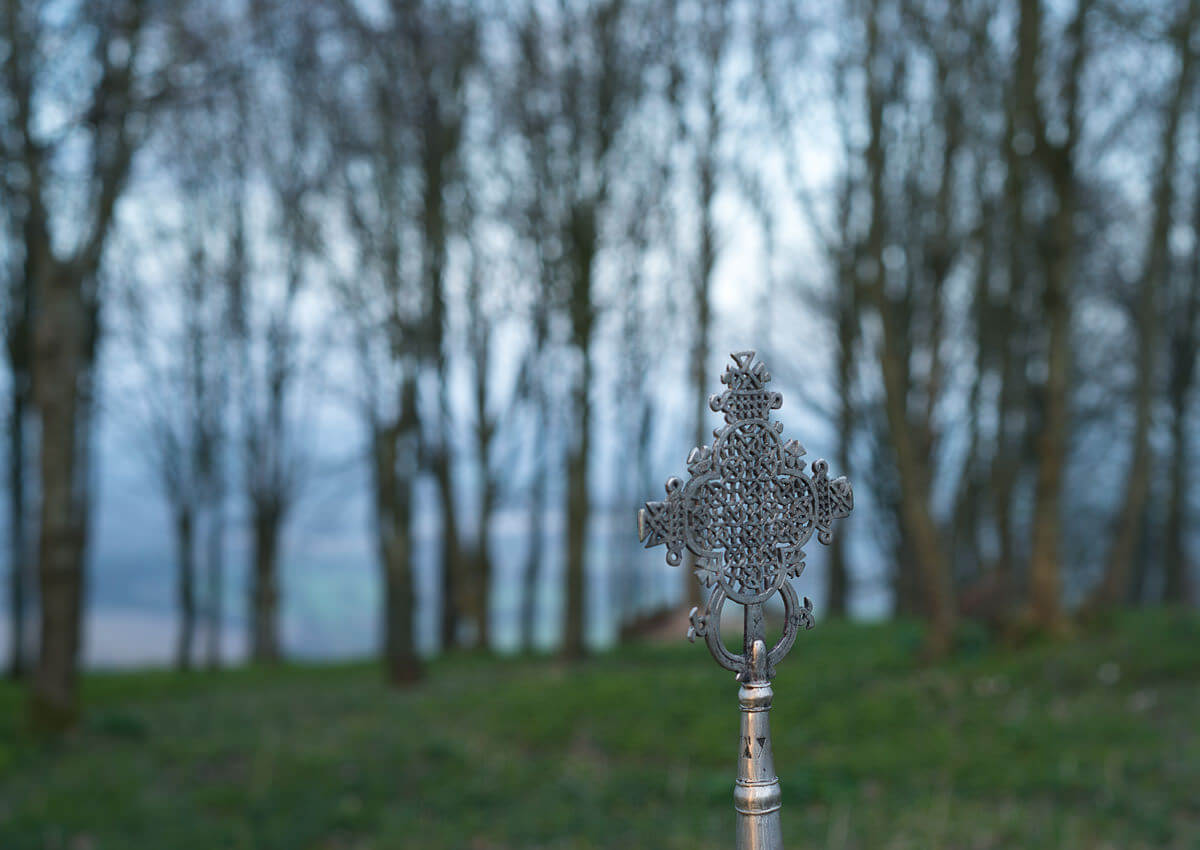‘I think we should call them ‘the wild bunch’, announced Scott, as we disembarked 92 rare breed sheep from the stock trailer. The pure Shetlands, Shetland/Manx, Shetland/Icelandic and Wiltshire Horn/Shetland crosses, cavorted out of the trailer, liberated from their five hour journey from Devon to West Sussex, clearly very relieved to have completed the sheep equivalent of a long haul flight. Bleating their happiness in the fresh air, they all set about sampling the grass at the MeadowBlue Solar Farm, their new home. The Society of St Columba has been planning to start sheep husbandry for nearly a year.
The community of creation is an important part of our spiritual life together. There can be no doubt Christianity as a faith has often been portrayed/stereo-typed as legitimising the abuse and pillage of the created order on the grounds that God gave dominion over creation to humanity. This could not be further from the truth of what being a Christian is about. The integrity of preserving species, learning about conservation, quality of life and living alongside all of creation in a sustainable manner is at the core of the Christian ethic, and the wild bunch are very much a part of our community now. A growing together with the whole of creation is beginning to find its place in our fledgling community. These rare breed sheep, their care, character and companionship will be formational for us all as we grow together in God.
Our Flock.

The heritage of our new flock is a beautiful story. Rebecca Hoskings wildlife camera woman turned organic sheep farmer and eco-campaigner (the previous owner of our sheep), sourced her primary stock from traditional crofters in the Shetlands. Rebecca hand picked her flock for their genetics, hardiness and strong bloodlines, many of whom are very rare and highly sought after by wool enthusiasts, breeders, and chefs alike. Our wild bunch are a mix of pure Shetland ewes, pure Icelandic and crosses of these breeds with Foula (from the Island of Foula), Manx and Soay. We are still waiting the arrival of our beloved Herdwicks to arrive, any time soon.
So why these breeds? We wanted to explore a flock of high quality short tailed, primitive, semi wild breeds. The history of sheep herding in Britain dates back to pre-history where the symbiotic relationship between humanity and sheep was at the very cornerstone of the primal development from hunter gathers to settled agriculture. Our new fledgling flock will sustain us, feed us, keep us warm and add character and colour to our shared life. If this implies knitted underwear, nothing could be further from our thoughts. Over the coming months we will be researching the various networks locally and nationally in order to begin to work alongside communities and introduce them to the uniqueness of our sheep. Whether it is meat, wool, fleeces or breeding of pure blood lines, our relationship with these beautiful creatures will teach us much about ourselves and our Creator.

Education & Training.
Conservation, experiential education and training is also an opportunity we will explore over the coming years. Good animal husbandry helps preserve, nurture and diversify rare breeds of any livestock. We are very fortunate to have Elizabeth a vastly experienced shepherdess who has agreed to take on overseeing the health and management of our flock. We will also be giving training days in the coming months on how to care and shepherd sheep. So if you are interested in getting your hands dirty with The Wild Ones, register your interest via the email address below.
Going to Market.
This year we will be offering 20 Hoggets on a first come first serve basis. As all our sheep are slow reared, in an un-stressful and natural way, meaning the quality of our meat is exceptional. Additionally the beautiful and colourful high quality sheepskins will be available in time, so get your orders in early. If you would like to register your interest in buying meat, sheepskins¹ or wool then please contact Society of St. Columba via info@st-columba.com or fill out the contact form at the end of this blog and I will get back to you by return.
We will be marketing our meat, as ¼ (£40), ½ (£75) or full box (£120), fully butchered. Look out for a follow up blog giving more detailed information on the cuts of meat that will be in each box.
Sheepskins will typically be sold between £80 – £120 depending on quality and colour.
Conclusion.
A big thank you to everyone who responded to our call to support the establishment of this flock. Not only will we be fulfilling our Herdwick Sheep plan (see blog), but we have also managed to diversify our plan to include these other fantastic rare breeds. This has been a wonderful example of how the Society of St. Columba’s Community Benefit Society has begun its work in conservation and caring for the created order through our emerging small-holder farming activities.
Why not consider joining Columba’s Barn Community Benefit Society. Shares invested will go directly to supporting the development of our organic farming along side the other spiritual and conservation activities undertaken by the Society of St. Columba. For a prospectus please click here.
Footnotes. ¹ Please note a five month wait for the skins to be fully prepared and tanned. We use the last traditional British tannery left for a perfect and professional presentation of these exceptional fleeces. Links. Shetland Sheep SocietyBritish Icelandic Sheep Breeders GroupScott Stone – Stones Throw Farm



No Comments